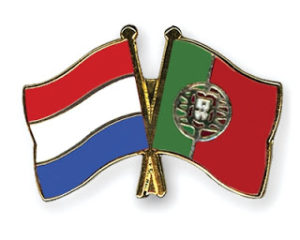Door Christopher Joby
It is well known that Dutch and Portuguese battled it out for domination and the right to trade in several parts of the world in the seventeenth century. In some cases, such as Japan, the Dutch gained the upper hand, while in Brazil, initial Dutch gains were eventually overturned by the Portuguese. It is no surprise that the frequent coming together of the Dutch and Portuguese had consequences for language. In Japan, Portuguese was the dominant European language from c. 1550 to 1650. Dutch gradually gained ground, but Japanese were still using the Portuguese language long after the Portuguese themselves had been banished in 1639. Lists survive containing words in Dutch, Portuguese and Latin. No distinction is made between them suggesting Japanese may have switched between the languages in the process of shifting from Portuguese to Dutch.
Elsewhere, Portuguese creoles emerged. Dutch loanwords in several of these have been recorded by Nicoline van der Sijs. The creole Portuguese of Batavia, Java contained some 90 Dutch loanwords such as vierkant (‘square’). In the Portuguese creole on Ceylon, some 40 Dutch loanwords such as boek (‘book’) were recorded at the start of the twentieth century. The Dutch took Malacca in modern- day Malaysia from the Portuguese in 1641. Some 60 Dutch loanwords were adopted by the local Portuguese creole, such as lui (‘lazy’).
This contact also worked the other way. For example, in Japan the Dutch referred to the Governor of Nagasaki as comprador, from the Portuguese for ‘buyer’.
Further reading
- Nicoline van der Sijs, Nederlandse Woorden Wereldwijd. The Hague, 2010, p. 59.
- Christopher Joby ‘Dutch in Eighteenth-Century Japan’, Dutch Crossing
doi: 10.1080/03096564.2017.1383643
Dit stukje verscheen eerder op The History of Dutch.

Laat een reactie achter